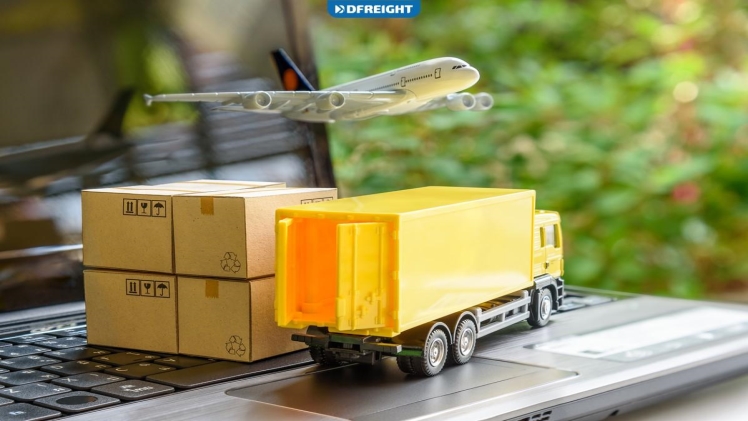Table of content
- Introduction
- Forgetting to Label Packages
- Inappropriate Packing
- Packing Fragile Items Improperly
- Incorrect Listing of Weight and Freight Class
- Not Understanding Shipping Requirements for Different Countries
- Ignoring Customs Rules and Regulations
- Neglecting the Need for Insurance Coverage
- Conclusion
Shipping goods involves more than just packing and sending out the package – there are a few potential mistakes you should watch out for that could lead to delays or problems with delivery.
Additionally, shipping is a crucial step in every business; if not done correctly, it can be complex and full of pitfalls. Despite the best intentions, sending items incorrectly can lead to delays, lost deliveries, and even damaged items. We’ll discuss some of the most typical mistakes made when delivering items in this blog and offer advice on avoiding them. It’s crucial to be aware of these pitfalls, whether you’re a seasoned pro or just getting started, so you can ensure your products arrive at their destination promptly, securely, and safely. Therefore, continue reading to discover more if you can begin to ship things like a pro!
Forgetting To Label Packages
Ensuring your packages are labeled correctly is an essential step that should not be overlooked. Ensure to include the receiver’s name, address, phone number, and any special instructions for the delivery person on all packages. Moreover, consider adding a precautionary safety label or warning if you’re shipping items that may require special handling (e.g., fragile and hazardous materials). Labeling your packages can help ensure they arrive safely and securely. A lack of relevant information might ensure that the package is handled correctly.
Inappropriate Packing
Making mistakes when shipping can be costly and frustrating. These mishaps can cause significant expenses and unhappy customers, from damaged freight to poor packaging. Even boxes sized correctly and packed properly may not survive the journey since most shipping containers lose structural integrity over time during a single voyage.
Putting time and effort into making a product is only worthwhile if it is adequately packaged for shipment. Ensuring that the package is correctly sized and suitable for transportation can help prevent risks associated with shipping errors.
Shipping mistakes come in many forms, whether it needs to be corrected to address information or insufficient packaging. To avoid issues, triple-check the delivery address and ensure that products are securely attached to the pallet before shipping. Use stacking patterns such as column-stack or interlock, secure with stretch wrap and bands, and add padding for stability and strong absorption. net worth
Packing Fragile Items Improperly
Breakable items can be one of the more difficult packages to send because you’ll need to ensure the item isn’t damaged in transit. When packing fragile items, use a box with enough cushioning material, such as foam peanuts or bubble wrap. Make sure to fill any gaps between objects and the sides of the box, so they don’t move around during transit. Lastly, clearly label your parcel with a “Fragile” warning sticker or phrase and other details about its contents. By taking these additional steps, you can help ensure that your package arrives safely and securely at its destination.
Incorrect Listing of Weight and Freight Class
When it comes to shipping, miscalculating your shipment’s weight or freight class can be costly. Incorrect estimates can result in high surcharges, so it’s important to double-check your calculations before booking a load. Having your package weighed at a certified weighing station is also advisable rather than trying to guess its weight. Accurately listing the freight class and weight on your bill of lading will help avoid unnecessary charges.
Often, shippers want to list their shipments at the lowest possible classification level to get the cheapest rate. But they should be careful – if they make a mistake and the shipment is reclassified, they will end up with a much higher reclassification charge than in comparison with what a higher class would cost.
Making mistakes when shipping is not only costly, but it can also damage a business’s reputation and brand image. This is especially true for companies that ship large amounts of freight yearly – the costs of errors add up quickly. Companies should strive for accurate shipments and timely deliveries to ensure customer satisfaction.
Not Understanding Shipping Requirements for Different Countries.
When shipping overseas or outside your home country, you must research first to ensure you fully understand the shipping requirements. Some countries may require additional documentation or labeling, leading to customs clearance delays and costly fees if they still need to be fulfilled. Furthermore, international packages must comply with the Prohibited and Restricted Items policy, meaning that certain items like weapons or food may be prohibited in the destination country. Understanding these policies can help ensure your shipment is completed on time and allowed entry into another country.
Ignoring Customs Rules and Regulations.
One of the most common mistakes with international shipping is needing to research to understand customs rules and regulations in the destination country. Please do so to avoid significant delays in delivery, additional fees, or even package denial when it comes time for customs clearance. That’s why it’s essential to confirm that all documents are completed correctly and that all items comply with the Prohibited and Restricted Items policy in the destination country before you ship.
Refrain from neglecting the Need for Insurance Coverage.
Insuring your shipments is an essential part of the shipping process. Purchasing insurance provides financial protection if something goes wrong during transit, such as delayed delivery, lost package, or damaged goods. Without insurance coverage, you may have to repay customers for their orders, resulting in lost profits and trust. In addition, some regulations, such as GDPR guidelines for international packages, require that goods be insured in transit. Research the best insurance option before shipping your goods to avoid potential risks.
Hiring One Carrier for All Shipments
If you use multiple shippers for your products and goods delivery, you will likely make a significant mistake impacting your overall supply chain. Here’s why this is such an issue:
Shipping mistakes can be highly costly for businesses. You are vulnerable to an unexpected strike or accident if you rely on a single carrier to deliver your products. With a way to get customer orders, businesses could avoid lost sales and disgruntled customers. Therefore, businesses must diversify their delivery strategies to protect against such risks.
One reliable and affordable yet accessible way of finding different shipping companies at once is an online car transport marketplace. Using the car transport marketplace, you can find various car transport quotes and shipping providers for each shipment.
Avoiding shipping mistakes can benefit you in the form of cost savings. Different delivery providers offer different prices, so it’s beneficial to look around for the best deals and shop around. You can save money by hiring multiple carriers to fulfill your shipment needs.
Double-check your carrier’s schedule and ensure you send out shipments promptly to avoid potential delays. The wrong shipping decisions can have costly consequences, mainly when relying too heavily on a single carrier. Partnering with multiple carriers is an intelligent business move if you aim to get the best prices and have flexible operations. With various carriers in your corner, you’ll ensure you’re taking advantage of essential opportunities and savings.
Failing to Adhere to Country-Specific Regulations
Following all the applicable regulations for shipping is critical to ensure safety and promote efficient delivery. Please do so to avoid costly delays or even hefty penalties. It is vital to stay on top of all the necessary paperwork and double-check that everything is up-to-date before sending out shipments to ensure everything runs smoothly and smoothly.
When shipping goods abroad, it pays to do your research first. Not knowing the customs requirements, taxes, and other paperwork can lead to costly mistakes, delays, and additional fees. To avoid such issues, working with an experienced freight forwarder knowledgeable about overseas shipping regulations is essential. Doing so not only ensures accuracy and efficiency but also helps to minimize costs associated with international shipping.
Conclusion:
The process of shipping goods can be complicated, so care must be taken to avoid common errors like forgetting to label packages, packing fragile items improperly, listing weight and freight class incorrectly, failing to comprehend the shipping requirements for various countries, failing to follow customs rules and regulations, and overlooking the necessity of insurance coverage. Businesses can guarantee their goods get to their destination quickly, securely, and safely while preserving customer satisfaction and safeguarding their brand by avoiding these mistakes. Companies can prevent costly errors and maintain a positive brand image by understanding the shipping process and adhering to best practices.

